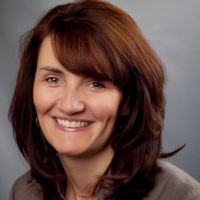Laurie Douglass, M.D.
Associate Professor, Pediatrics and Neurology – Boston University School of Medicine
Chief, Division Child Neurology – Boston Medical Center/Boston University School of Medicine

Associate Professor, Pediatrics and Neurology – Boston University School of Medicine
Chief, Division Child Neurology – Boston Medical Center/Boston University School of Medicine
Key Words: Prevention, Mental Health, Children and Youth with Special Healthcare Needs, Self-Management, Community Health Workers, Social Ecological Model
Youth mental illness is more prevalent now than ever before, but only 20% of those in need receive professional treatment. Overcoming this problem will require innovation that prevents mental illness, reduces stigma, disrupts systemic barriers, and aids the strained mental health (MH) workforce. Youth with epilepsy (YWE) are up to 5 times more likely to develop mental illness such as depression, anxiety, and bipolar disorder and 14 times more likely to report suicidality than their peers. Reasons for this are complex, but evidence suggests that the cause is more deeply rooted in social, rather than biological problems. YWE currently face more obstacles to MH treatment than other youth, indicating a pressing need to assist and support this high-risk community.
By applying quality improvement and clinical research methods to a population of underserved YWE 12-21 years of age, we can identify high-impact, low-cost solutions to the MH crisis facing today’s youth, with a focus on YWE. Our team of researchers and providers at Boston Medical Center’s safety net hospital system, in collaboration with the Epilepsy Foundation of New England, propose the following plan: 1) develop educational visual aids and provider scripts that proactively improve the process of assessing MH risk factors, discuss the impact of stigma, and nurture protective assets for YWE; and 2) design and pilot a team of community health workers (CHWs) who will educate, coach, and leverage a social-ecological support system of caregivers, school, community, and health professionals around YWE. We chose these methods because of their success in adult populations and in other groups with less medical and social complexity than in YWE. This plan has not been carried out before in pediatrics, nor with a large-scale preventative mission, though many previous researchers have pointed to the need for socially and culturally sensitive MH interventions in youth with chronic conditions. If the hypotheses in our project prove correct, our collaborative methods would have wide implications for improving child health outcomes in any pediatric population facing obstacles to traditional MH services.